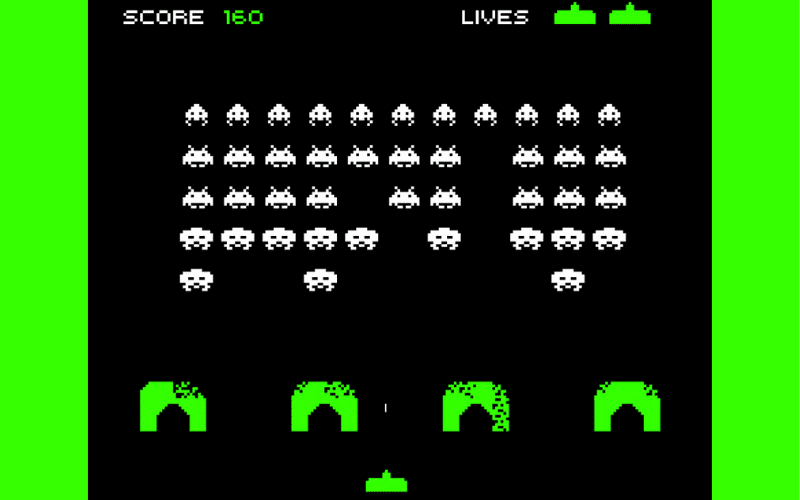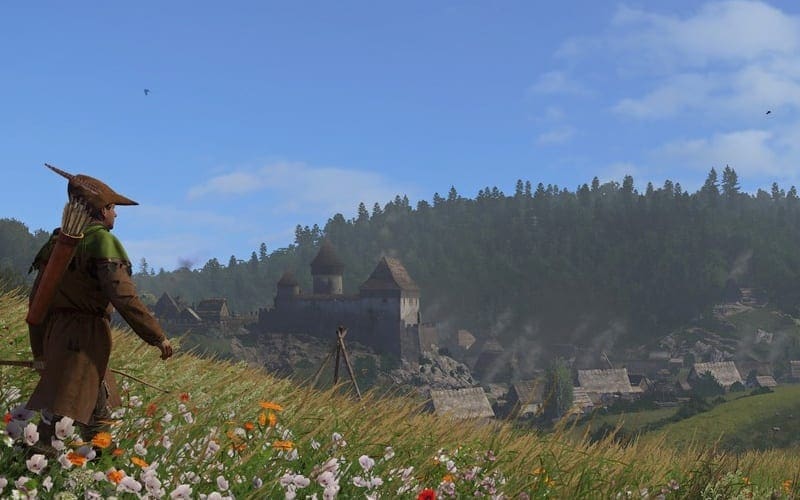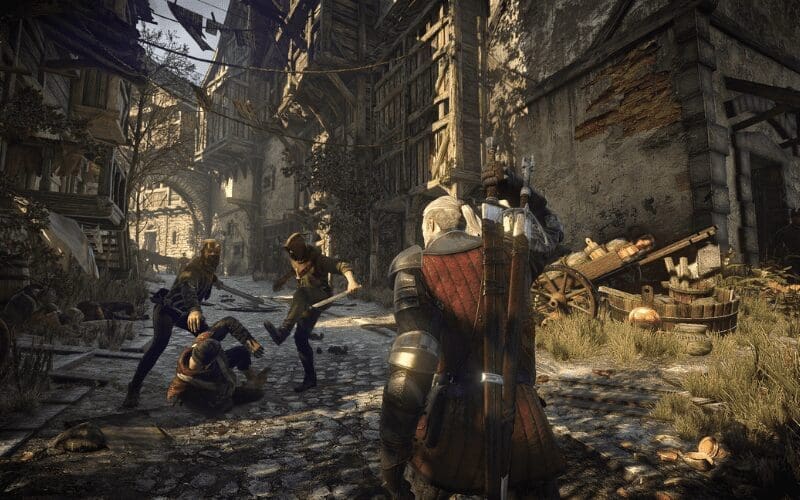Have you ever wondered about the infrastructure within your favourite game? How the non-playable characters seem to think and act as if they were actually being controlled? That’s AI in gaming. This revolutionary technology provides ample opportunity for growth and more exciting opportunities for future games. Artificial intelligence in gaming truly has boundless potential.

In this article, we’ll look at artificial intelligence in gaming; its role, the reason for being, its history, and much more.
Stay tuned for everything you need to know!
What Is AI In Gaming?

The progress in making robots that can speed up processes and think for themselves is truly staggering; it’s a testament to how far technology has come over the years. Artificial intelligence in gaming, however, is the collective term for video game experiences that respond and adapt to different situations.
AI offers a form of intelligence to non-playable characters – NPCs – that enables them to act intelligently or creatively. Beyond basic, rigid, simple behaviours. NPCs acting as if they were controlled by humans make the game world feel realistic and authentic. NPC AI is a paramount requirement for single-player games, as interactions with the player are of vital importance. Multiplayer games can also benefit from NPCs to add further depth to the world and overall experience.
Why Does AI In Gaming Matter?

So, what are the advantages of AI in gaming?
With technology advancing at the rate it has been, video games need to keep up; not just in how they look, but how they run, and how they provide a unique experience and immersive gameplay. NPCs can add so much more to a game if they have ‘personalities’ and behaviours affected by certain situations. Even then, whether it’s a bot in shooting training or a character with one line of dialogue, they’re still considered AI; just in its most basic form.
AI also allows developers to deliver console-like experiences on any device, graphics aside, making it of vital importance.
How Is Artificial Intelligence Used In Gaming?
Now that we’ve gone over why AI in gaming matters, we’re going to dive into how it is actually used.
Let’s start with the history.
History

In order to get the best comparison of AI within gaming over the years, it’s worth going back to 1951. The Ferranti Mark 1 machine at the University of Manchester created AI opponents, with Christopher Strachey writing a program for Checkers and Dietrich Prinz writing one for Chess. These were eventually improved and added to, resulting in AI bots of various levels of skill. At the very least, they had sufficient skill to challenge an amateur player.
When Space Invaders burst onto the scene in 1978, AI opponents became increasingly more utilised and popularised. We saw more variety in difficulty level, movement patterns and in-game events reacting to certain player inputs. It’s weird to consider how celebrated this development was, considering the extent to which it has grown within gaming since.
Making Games Smarter & More Realistic
A game’s realism is often based on how it looks graphically. Nevertheless, the intelligence of everything inhabiting that space is also vital to a smart and realistic world.
Several games have revelled in their intelligent AI over the years. Stemming from those chess and checkers bots, AI being able to compete with the human mind is a wonderful concept. Let’s run through a few modern examples of impressive AI developments in gaming.
The Nemesis System

Shadow of Mordor was revolutionary in itself. Not only was it set in the craved-for Middle Earth, but its orc AI spiced things up with its diversion from typically linear NPC interactions. Enemy orcs remember fights with the player, perhaps possessing a scar or wound from before.
Alternatively, if the orc killed the player, they would rise up the ranks, making them even stronger in future encounters. This was dubbed the Nemesis System, a revolutionary way of adding intelligence to a game’s antagonists.
A ‘Living World’

Kingdom Come: Deliverance prides itself on its living world, with time flowing consistently. This means that players can miss out on quests if they take too long, and NPCs react to every little thing the player does. This could be someone recognising your face a day after a crime you’ve committed, and reporting you to the authorities.
Its dynamic AI system and day-night cycle complemented its exceptional graphics and made it a realistic medieval game.
Variable NPC Routines

Over the years, artificial intelligence in gaming has been developed to the point where NPCs may have their own daily schedules; going way further beyond just A-to-B waypoints. An example of this is everyday people on the streets of Novigrad in The Witcher 3, going through an advanced and complex routine.
Following an NPC in order to see this is not the intention, it’d inevitably lead to a pretty boring experience. But it simply adds to the realism of the game, with its society behaving like a real selection of people would. To an extent, of course – some of the people in The Witcher universe are not exactly normal.
Stealth

Enemy characters now react to sound and their field of view, adding stealth as a possibility in contrast to just combat.
The Assassin’s Creed and Splinter Cell franchises are prime examples of these types of games. AI gives NPCs access to the senses within a game, making it a realistic experience.
Enhancing Overall Gaming Experience

A game being more realistic and having a smarter AI is always going to improve the overall gaming experience. Within reason of course. The graphics will always need to be at a decent level, otherwise the whole experience can be ruined.
Players hold replayable games in high regard. AI provides constant customisation of scenarios, considerably adding to any game’s replayability
Transforming Skills Of Developers

AI is essentially created by using mass amounts of data, creating variations on possible scenarios, narratives and actions in games. Collating such vast amounts of data currently requires a lot of time and effort from developers.
Developers will need to train further as artificial intelligence in gaming grows, expanding skills accordingly. If developers can specialise in, oversee and integrate machine learning more into the gaming industry, then the sky’s the limit.
Making Mobile Games Smarter With AI In Gaming

Mobile gaming is always going to have limitations compared to its console counterparts, due to the capabilities of the device.
However, mobile game developers are exploring different AI algorithms to in turn make better AI within mobile phone games. Mobile games have certainly improved in terms of performance and in-game intelligence over the past few years; there’s no reason why they can’t continue to grow.
What The Future Holds

For all of the positives and benefits of AI within the gaming industry, there’s always reason to aim higher. In theory, the possibilities are endless. In terms of what could be achieved in the near future, complete intelligence is an infinite concept.
Characters responding to a player’s action without being limited to a constricted list of options would make for seamless interactions. A game-designing AI system that could change and adapt as players make different decisions.
There are so many more innovative ideas that could potentially be made into reality, so watch this space.
Our Final Thoughts About AI In Gaming

So, there we have it! With everything covered in this article, you should now have basic knowledge of what AI is and its role within the gaming industry.
Playing the games used as examples yourself will properly show you the extent that a clever AI system can improve a game, either in its entirety or just in its characters’ behaviours.
If you enjoyed this article, why not check out another on our blog? To get you started, we recommend our Game Developer Guide, What Is A Graphics Card?, and our Game Character Design Guide.
Are You In The Gaming Industry?
Want to read more about the gaming industry? Then check out our blog! Game publishers and developers, what can we do for you? Our incredible music licensing service can help you streamline the way you license high-quality music and commission original compositions for your gameplay, apps, and advertising campaigns including YouTube and social media.
Also, with our Showcase page, you can flaunt your character design skills, show your creativity in level design, and show off your ability to design a fun, polished game. You can also showcase your work, list your upcoming games and allow fans to pre-order or buy them! Try all of this out for yourself by joining Мusic Gateway. Get your free trial, no strings attached.











